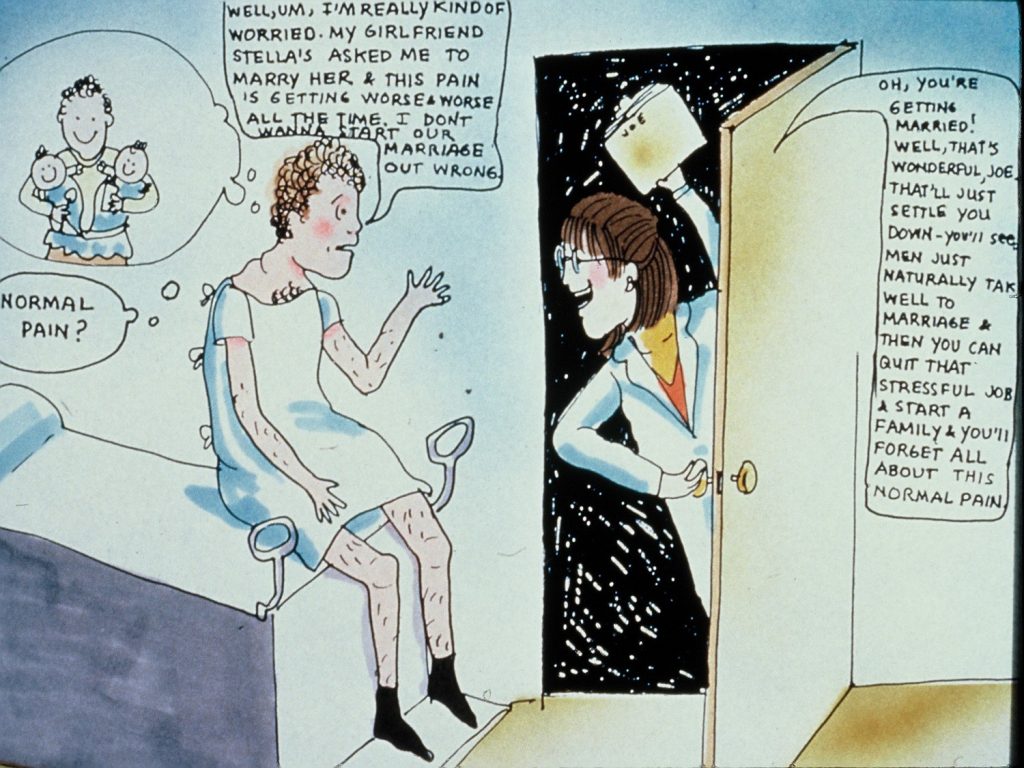endometriosis causes
now browsing by tag
Endometriosis: What You Need to Know
Endometriosis is a condition that affects millions of women around the world. It occurs when cells similar to those that line the uterus are found outside of the uterus, most commonly in the abdomen, ovaries, fallopian tubes, and other organs. These cells can form lesions, cysts, or adhesions which can cause pain, irregular bleeding, and other health issues. You can also visit https://endometriosisassn.org/about-endometriosis/causes if you want to know more information about Endometriosis.

The exact cause of endometriosis is not known, but it is believed to be related to retrograde menstruation, which is when menstrual blood and tissue flow back up through the fallopian tubes and settle in the abdomen. Other possible causes include genetics, immune system problems, and exposure to environmental toxins.
Endometriosis can cause a wide variety of symptoms, including pelvic pain, painful periods, pain during urination, heavy or irregular periods, and infertility. Other symptoms may include fatigue, bloating, constipation, and diarrhea. The severity of symptoms can vary greatly from woman to woman.
Diagnosis of endometriosis is typically done with an ultrasound or laparoscopy. An ultrasound can help to detect cysts, while a laparoscopy allows the doctor to view the internal organs and check for lesions and adhesions. Your doctor may also order a blood test to check for levels of hormones or other markers of endometriosis.
What Are the Risk Factors for Endometriosis?
Endometriosis is a condition that affects many women of reproductive age. It occurs when tissue similar to the lining of the uterus grows outside of the uterus. Endometriosis can cause severe pain and other symptoms and can affect fertility.
Knowing the risk factors for endometriosis can help women understand their risk of developing the condition. You can also browse the Internet if you want to know more information about causes of endometriosis.

Age is one of the most common risk factors for endometriosis. The condition is most often found in women between the ages of 25 and 44. Family history is also a risk factor, as endometriosis can run in families. Women who have a mother or sister with endometriosis are more likely to develop the condition.
Environmental factors may also be linked to endometriosis. Women who are exposed to certain chemicals or toxins, such as pesticides, dioxins, and certain types of plastics, may be at an increased risk of developing endometriosis.
Other risk factors include never having given birth, having a short menstrual cycle, and having heavy menstrual periods. It is also thought that women with weakened immune systems may be more likely to develop endometriosis.
While there are risk factors for endometriosis, it is important to remember that not all women who have these risk factors will develop the condition. If you are concerned about your risk for endometriosis, talk to your doctor.
Treating Endometriosis with Medication
Endometriosis can cause many uncomfortable and painful symptoms. Endometriosis occurs when tissue similar to the lining of the uterus grows outside the uterus. Many women with endometriosis may not know it until they experience severe symptoms or diagnostic sign for fertility treatment.
Endometriosis can be severe and have no symptoms. On the other hand, it can be mild and cause great pain. You cannot say how extensive endometriosis is seen from the symptoms you are experiencing. You can get detailed information about endometriosis- symptoms & diagnosis via Endometriosisassn.org.

Image Source: Google
Symptoms often cause chronic lower back pain and pelvic pain. Menstrual cramps and pain can be severe periods as well. Heavy periods, irregular bleeding, pain when urinating or defecating and infertility are common symptoms of endometriosis.
If you have been diagnosed with endometriosis, your doctor may prescribe medication to help manage your pain. If you are trying to conceive, you can choose to have laparoscopic surgery to remove as much as possible endometriosis. Talk with your doctor and infertility specialist about what options might be best for you.
Drugs are generally not used to women trying to become pregnant because the drug itself will keep you from ovulating. If you're just looking for the management of pain, then pain medications and hormone therapy may be effective for you, especially if symptoms are mild.
The pain usually can be managed with over-the-counter medications such as ibuprofen or naproxen. If not, then your doctor may prescribe a stronger pain reliever for you. If the pain persists, then hormone therapy is the next step.
.jpg)
.jpg)
.jpg)
.jpg)
.jpg)
.jpg)
.jpg)
.jpg)
.jpg)
.jpg)
.jpg)
.jpg)